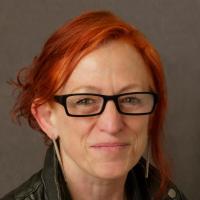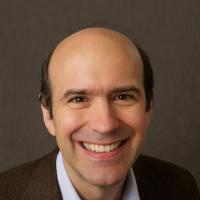Cellular and Molecular Physiology & Biophysics
The Cellular and Molecular Physiology & Biophysics Program provides a stimulating and supportive environment enabling graduate students to acquire fundamental training in physiology, cellular and molecular biology, and biophysics while participating in the rich intellectual life of Columbia University.
Coursework
Required Courses
Biochemistry, Cell and Molecular Biology I (BCHM G6300)
This fall semester required for all first year students course covers basic biochemical and experimental principles, such as protein and nucleic acid structure and chemistry, thermodynamics and enzyme kinetics, and bioinformatics. Also included are biochemical processes common to all cells such as genome replication and repair, regulation of gene expression, cell cycle control, and cell membrane and receptor biochemistry. Course Director: Stavros Lomvardas.
Responsible Conduct of Research and Related Policy Issues (CMBS G4010)
This spring semester course explores a variety of ethical and policy issues that arise during the conduct of basic and clinical scientific research. Course sessions include lectures, discussion periods, and analyses of case studies. Columbia requires that all graduate students share in the discussions of this course. You will hear from your faculty speaking honestly about problems that you may face. You will find the discussions interesting. Course Directors: Arthur Palmer and Jaime Rubin.
Biochemistry, Cell and Molecular Biology II (CMBS G6301)
Required for all first year students in spring semester, this course is an Introduction to eukaryotic cell biology and covers such topics as membrane trafficking, the mitochondria, the nucleus, viral biology, apoptosis as well as the cytoskeleton and its role in various cellular processes, including mitosis, cell migration, cell polarity and cell adhesion. Course Directors: Gregg Gundersen and Ai Yamamoto.
Mechanisms of Human Disease (PATH G6003)
This course provides an in-depth analysis of several organ systems and diseases associated with each organ system. The course has four modules; each module describes the basic physiology, nutritional status and anatomy of the organ system, the genetics, cell and biochemical mechanisms and pathologies associated with the disease, as well as basic pharmacology and therapeutics to treat the disease. Course Directors: Ronald Liem and Steven Spitalnik.
Statistics for the Basic Sciences (PHAR G8012)
This spring semester course provides an introduction to the basic statistics commonly used in biomedical research laboratories. Students are provided with a statistical software package for use during the course. Exercises based on relevant experimental data sets use the software to reinforce the lecture material. Topics covered include the role of statistics in biomedical research, principles of statistical analysis, and selecting and applying the appropriate statistical tests. Course Directors: Arthur Palmer.
How to Make a Drug (PHYG G6003)
This course covers the major disciplines required for successful therapeutics discovery, validation, and development including: 1) basic mechanisms of disease/target identification; 2) drugging the target/high throughput screening; 3) target validation/proof of concept relevant animal models of human disease; 4) introduction to medicinal chemistry – optimization of compounds/biologics; 5) basic concepts of intellectual property protection; 6) fundamentals of medical pharmacology; 7) basics in toxicology; 8) principles of drug development from pre-clinical to IND filing; 9) fundamentals of clinical testing. Course Director: Andrew Marks
Research in Physiology I (PHYG G9051)
Other Curricular Requirements
Rotation
Laboratory rotations provide an opportunity for each student to participate actively in ongoing research projects at Columbia, allowing the student to become familiar with techniques, literature and current questions in a variety of research areas. Rotations also provide the opportunity to identify a mentor with whom to pursue thesis work. Each graduate student will undertake three laboratory rotations (3–4 months in duration) during his or her first year. At the beginning of their second year, students choose research mentors and begin planning their thesis topics. Rotations are from Sept - Dec., Jan. - March, April - June.
Qualifying Examination
- Timing: Students are expected to pass this examination by the end of their second year.
- Format: The exam consists of two parts: a written proposal and an oral defense of that proposal before an Examination Committee.
- Qualifying Examination Committee: The Examination Committee will consist of the student’s thesis advisor and two or three additional faculty, one of whom must have a primary appointment in the Department of Physiology and Cellular Biophysics. The student will consult with the thesis advisor and the Co-Directors of Graduate Studies in establishing an Examination Committee.
- Research Proposal: The research proposal is in the style of an NIH fellowship proposal (≤7 pages, not including references). The subject may be in any area but must be approved by the Co-Directors of Graduate Studies, and could be directly related to the student’s thesis research. The Qualifying Exam document should be written and arranged into Specific Aims, Significance, Approach, and References sections. The research proposal must be distributed to all members of the Examination Committee at least one week prior to the oral exam.
- Oral Defense: The student will deliver a 15-20 minute presentation of the written proposal to the Examination Committee with an open panel discussion following. Though questions by the Examination Committee may initially focus on the proposal itself, this is a comprehensive examination where the student is expected to demonstrate an appropriate background in Physiology and an understanding of underlying principles.
- Outcome: The Examination Committee may pass the student, fail the student, or request a second examination consisting of an oral defense of the original proposal, an amended proposal, or a new proposal. Should a student fail the initial or the re-examination, the matter will be referred to the Graduate Studies Committee, which will determine whether or not the student is to continue in the doctoral program.
Thesis Committee Meetings
Following successful completion of the Qualifying Exam, each student, together with the thesis mentor, will assemble a thesis committee. Thesis committees meet at least once a year to provide scientific input and assess student progress.The thesis committee advises on readiness of the student to defend the thesis and, together with an outside expert, presides at the defense.
Seminar
Students attend the weekly Departmental seminar series. All other departments at Columbia University Medical Center also hold weekly seminars at which our students are welcome.
Each year, the Physiology Graduate Students nominate and host a speaker within the Physiology Seminar Series. Students are invited for a private lunch with the speaker after the seminar. Such events provide students with opportunities for personal interactions with senior scientists of their choice, to seek career advice etc.
Journal Club
A Physiology graduate student-led Journal/Data Club meets monthly and provides students with a forum for informal discussion of the literature and of one another's work.
Departmental Retreat
At the annual Departmental Retreat, each student delivers a platform or poster presentation. This all-day event provides opportunities for scientific feedback, informal interactions and fun for all faculty, postdoctoral fellows and graduate students in the Department of Physiology and Cellular Biophysics.
Translational Cardiovascular Research Training
The graduate program in Cellular and Molecular Physiology & Biophysics includes an optional program for students interested in pursuing advanced graduate training in cardiovascular biomedical research. The Translational Cardiovascular Research Training Program is conceived to enhance and ensure the development of cardiovascular scientists with broad-based knowledge in the fields of Cardiovascular Cell Biology, Biophysics, Genetics and Genomics, Bio- and Tissue-Engineering and Clinical Sciences.

